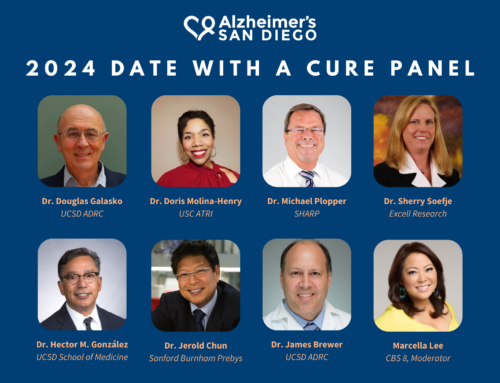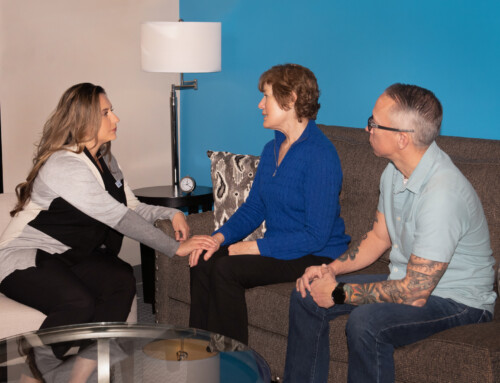It can seem like there’s a new Alzheimer’s “breakthrough” almost every day. We sift through the headlines and pull together the relevant, reputable research updates for you. Here are 4 things you should know about Alzheimer’s and dementia research from the last month.
1. Biogen drug moves to Phase 3 trials
While Biogen announced it was ending trials for the once-promising Alzheimer’s drug, aducanumab, in March, they are moving ahead with a pipeline of other drugs targeting early-stage Alzheimer’s disease. Phase 3 trials of the joint Biogen-Eisai Alzheimer’s treatment BAN2401, called Clarity AD/Study 301, began late last month. This will be a a global, placebo-controlled study with 1,566 participants living with mild cognitive impairment or early-stage dementia.
BAN2401 is an antibody that binds to large oligomers, called protofibrils, and neutralizes their damage to brain cells. Researchers believe that BAN2401 may have the potential to have an effect on disease pathology and to slow down the progression of the disease. Currently, the trial is only recruiting participants in Florida.
Learn more: http://bit.ly/2FYmxIH
2. New trials to focus on light & sound therapy
A recent study has expanded on the benefits of gamma wave therapy – and has led the creation of three new clinical trials. The study, led by MIT scientist Li-Huei Tsai, found that treatment combining light and sound waves at a certain frequency led to improved brain functions and a decrease in amyloid protein plaques and tau protein tangles in mice. This is accomplished by the light and sound waves helping trigger microglia, a type of brain immune cell, to clear the toxic plaques and tangles. Tsai is now working to translate these findings into potential therapies for humans, with three clinical trials of combined auditory and visual stimulation in people at various stages of Alzheimer’s or other dementias.
Learn more: https://nyti.ms/2FWSIrS
3. FDA panel rejects brain stimulation device
A Food & Drug Administration panel voted overwhelmingly to recommend that a brain stimulation device called the neuroAD not be allowed to be marketed in the United States. “The Panel was in unanimous agreement that the probable benefits to health of the neuroAD Therapy System do not outweigh the probable risks to health,” according to a statement released by the FDA. The neuroAD was created by the Israeli-based company Neuronix, and is approved for use in Europe, Australia and Israel. The device combines repetitive transcranial magnetic stimulation and cognitive training in what it claims to be a memory-improving therapy for people in the early stages of Alzheimer’s disease.
Learn more: http://bit.ly/2IdvrFR
4. Study of mitochondria could provide another clue to Alzheimer’s
Mitochondria could be the key to finding a cure for Alzheimer’s disease, according to a recent study. Mitochondria are known as “the powerhouses of the cell” and help break down nutrients and create energy. In studying mice with signs of Alzheimer’s, scientists found there were also signs of failed mitophagy, the process through which damaged mitochondria are broken down and disposed of. The team worked to identify drug compounds that would stimulate and reinvigorate the mitophagy process. Alzheimer’s mice performed much better in memory tests and showed reduced neuroinflammation and lower accumulation of amyloid-beta and tau when treated with:
- Nicotinamide mononucleotide (NMN) – crucial for cellular energy metabolism
- Urolithin A- a compound found in pomegranate that induces muscular mitophagy
- Actinonin – a naturally occurring antibacterial agent
Learn more: http://bit.ly/2GaZ4Fy




